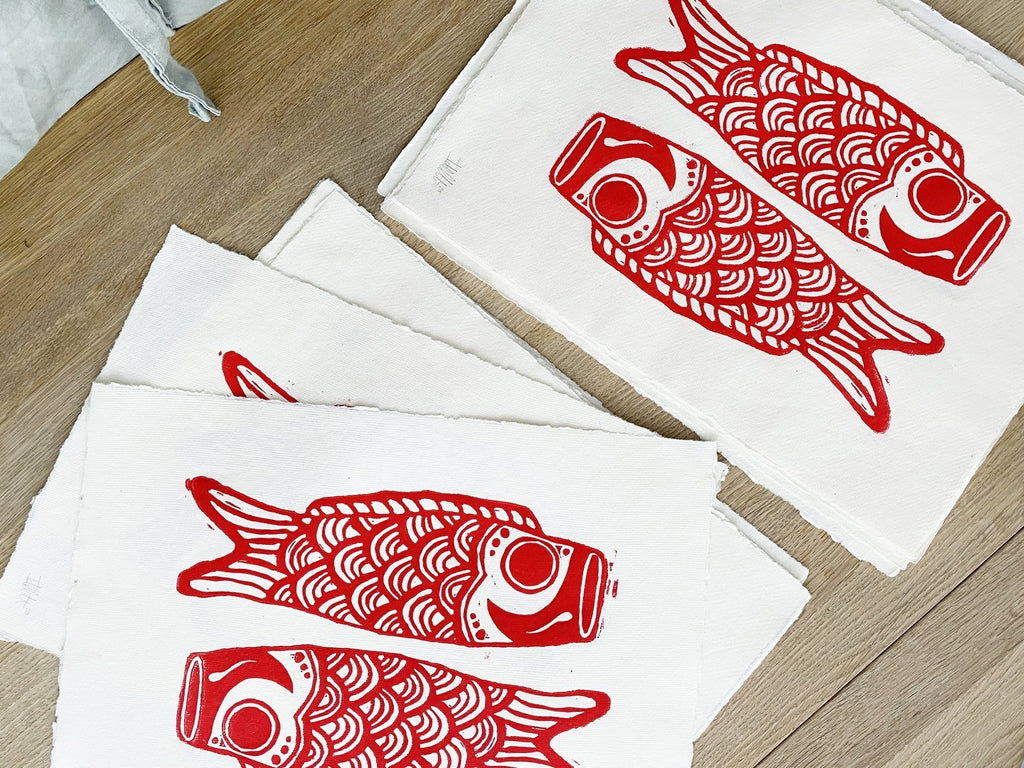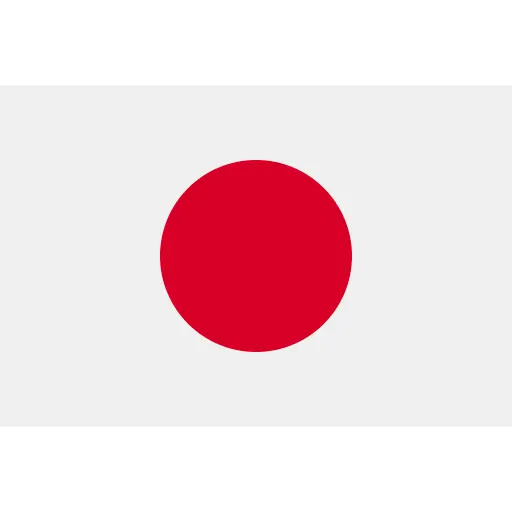The symbolism behind koinobori

(Our linoleum print koinobori - find it here )
What is Koinobori (鯉のぼり)?
Our popular linoleum print Koinobori finds its inspiration in our travels to Japan, where it is often possible to spot a pennant with the characteristic carp in the cityscape or in Japanese shops. 'Koinobori' means 'carp pennant', and the fish-shaped flags are often used in connection with the celebration of Children's Day , which is a traditional day in Japan.
And why the choice of a carp, you might think? For the Japanese, the carp is a symbol of strength and health, as it partly lives for a long time and partly has the energy and strength to swim against strong currents. When the flags are hoisted and blown in the wind, this illustrates the strength and power of the carp, where it stands stronger when the wind blows.
In Japan, the carp is thus seen as a symbol of the strength in using current/headwind to overcome challenges and thereby achieve one's goals. Traditionally, the flags, as described, are used on Children's Day, where they vary in color according to the number of children in the family and their gender.
Japanese symbol of strength and health
Decorate with motifs that can remind you of different parts of life. We think that the idea behind Koinobori is fine in that it can remind us that adversity and difficult things in life can make one stronger. With the motif hanging on the wall, this can thus be a daily reminder of one's own strength and overcoming.
The motif is created by hand, which is why no two prints are alike. They all have unique details that make them their own - just like the carp. Find it here .




























































































